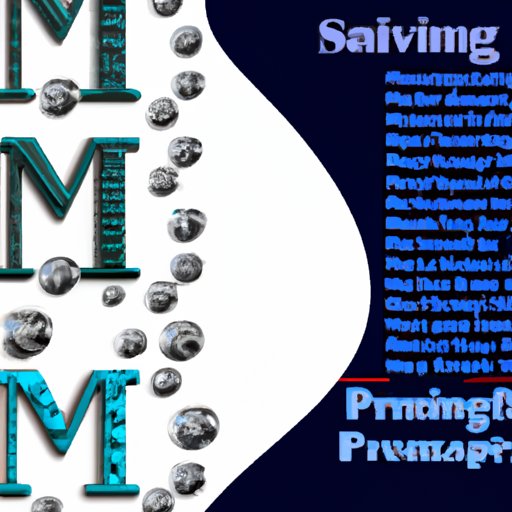Introduction
Minerals are naturally occurring substances found on Earth that have distinct chemical compositions and physical properties. They are essential for human life and are used in a variety of applications. This article will explore the various uses of minerals in everyday life, from promoting human health to powering new technologies, as well as examining potential environmental impacts and ways to maximize positive uses while minimizing negative impacts.
The Role of Minerals in Everyday Life
Minerals play a key role in everyday life. They are used widely in products such as fertilizers, paints, ceramics, glass, plastics, and metals. In addition, minerals are essential for human health. Most people get their daily intake of essential minerals through their diets. Common dietary sources of minerals include nuts, grains, fruits, vegetables, dairy products, fish, and meat.
Minerals also provide economic benefits. Mining operations provide jobs, generate income, and help support local economies. The extraction of minerals can also lead to the development of infrastructure, such as roads and railways, which can facilitate trade and transportation.

Environmental Impacts of Mineral Extraction
Although mineral extraction has the potential to generate economic benefits, it can also have significant environmental impacts. These impacts can include air and water pollution, disruption of ecosystems, and the destruction of habitats. To minimize these negative impacts, mining companies must use sustainable practices, such as using renewable energy sources, reclaiming land, and reducing waste.
In addition to traditional methods of mineral extraction, there are also innovative uses for minerals in technology. For example, rare earth elements are used in the production of cell phones, computers, and other electronic devices. These minerals are also used in green energy technologies, such as wind turbines and solar panels.
Conclusion
In conclusion, minerals play an important role in everyday life. They are essential for human health and provide economic benefits. However, mineral extraction can also have significant environmental impacts, so it is important to use sustainable practices to minimize negative impacts and maximize positive uses. Innovative uses of minerals in technology are also becoming increasingly popular.
By understanding the role minerals play in everyday life, we can ensure that their use is managed in a sustainable way that minimizes environmental impacts while maximizing positive benefits.
(Note: Is this article not meeting your expectations? Do you have knowledge or insights to share? Unlock new opportunities and expand your reach by joining our authors team. Click Registration to join us and share your expertise with our readers.)
